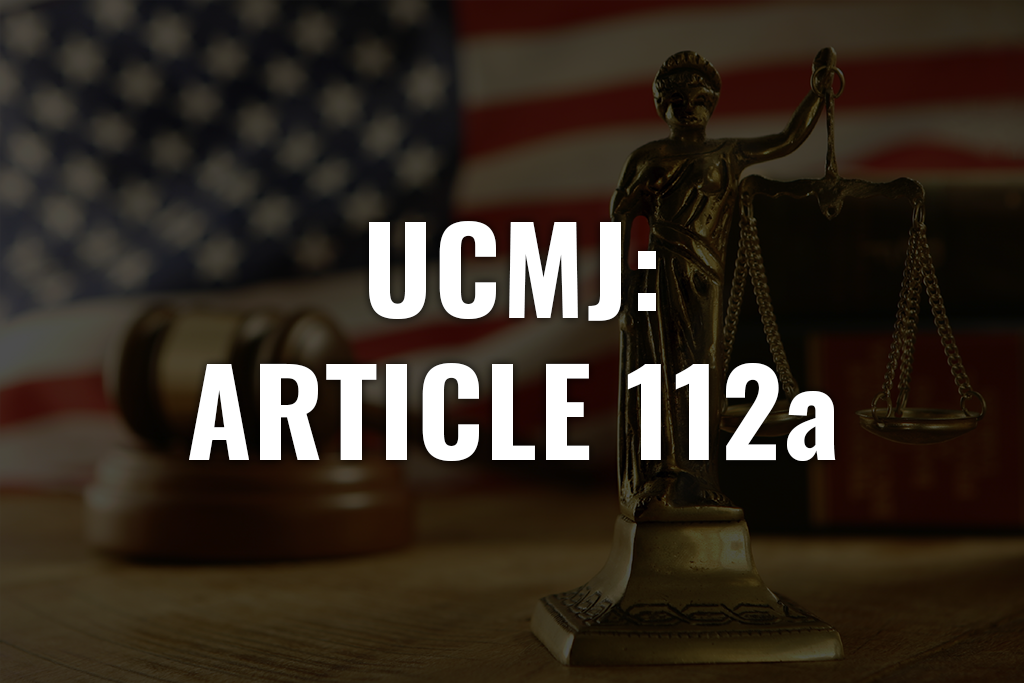Military Lawyer for Introduction of Drugs with Intent to Distribute – Article 112a
At Bilecki Law Group, We believe every service member has earned their right to an aggressive defense on their day in court. We specialize in taking the fight to the prosecution and winning cases that others said were unwinnable.
Home Introduction of Drugs with Intent to Distribute
Drugs – Wrongful Introduction – With Intent to Distribute Article 112a.
To be convicted of wrongful introduction or wrongful introduction with intent to distribute under Article 112a, UCMJ, the prosecution must prove beyond a reasonable doubt that you introduced a certain quantity of a controlled substance onto an aircraft, a vessel, a vehicle, or an installation used by the armed forces or under the control of the armed forces. They must also prove that you knew you introduced the substance. That you knew that the substance you introduced was of a contraband nature; and, that the introduction by was wrongful. If you are also being charged with intent to distribute, then the government must also prove that the introduction was with the intent to distribute.
Definitions and Defenses Under Article 112a, UCMJ
- One, if such act or acts are done pursuant to legitimate law enforcement activities (for example, when an informant introduces drugs as part of an undercover operation, that introduction is not wrongful).
- Two, if it was done by authorized personnel in the performance of medical duties. Introduction of a controlled substance may be inferred to be wrongful in the absence of evidence to the contrary. However, the drawing of this inference is not required.

Knowledge Of the Presence of the Substance At Issue Under Article 112a, UCMJ
Knowledge of the Nature of the Substance At Issue Under Article 112a, UCMJ

Intent to Distribute Alleged Under Article 112a, UMCJ
An intent to distribute may be inferred from circumstantial evidence. Examples of evidence which may tend to support an inference of intent to distribute are introduction of a quantity of substance more than that which one would be likely to have for personal use, market value of the substance, the way the substance is packaged or that you are not a user of the substance. On the other hand, evidence that you are addicted to or are a heavy user of the substance may tend to negate an inference of intent to distribute.
Deliberate Avoidance Under Article 112a, UCMJ
- You did not know for sure that the substance was not of a contraband nature.
- You were aware that there was a high probability that the substance was of a contraband nature; and
- You deliberately and consciously tried to avoid learning that, in fact, the substance was of a contraband nature, then the jury may treat this as the deliberate avoidance of positive knowledge. Such deliberate avoidance of positive knowledge is the equivalent of knowledge.
Exceptions To Wrongfulness Under Article 112a, UCMJ

Maximum Punishment Under Article 112a, UCMJ
Wrongful Introduction of a Controlled Substance.
- (a) Amphetamine, cocaine, heroin, lysergic acid diethylamide, marijuana, methamphetamine, opium, phencyclidine, secobarbital, and Schedule I, II, and III controlled substances: Dishonorable Discharge, Total Forfeitures, 5 years confinement, Reduction to E-1.
- (b) Phenobarbital, and Schedule IV and V controlled substances: Dishonorable Discharge, Total Forfeitures, 2 years confinement, Reduction to E-1.
Wrongful Introduction With Intent To Distribute.
- (a) Amphetamine, cocaine, heroin, lysergic acid diethylamide, marijuana, methamphetamine, opium, phencyclidine, secobarbital, and Schedule I, II, and III controlled substances: Dishonorable Discharge, Total Forfeitures, 15 years confinement, Reduction to E-1.
- (b) Phenobarbital and Schedule IV and V controlled substances: Dishonorable Discharge, Total Forfeitures, 10 years confinement, Reduction to E-1.
- (c) When aggravating circumstances are alleged: Increase maximum confinement by 5 years.
Fighting Your Drug Distribution Charges
If you ready to fight your drug introduction or introduction with intent to distribute charges, give us a call and we are happy to do a consultation with you. At Bilecki Law Group, we will always shoot you straight and tell it like it is. If you are ready to fight, so are we.
